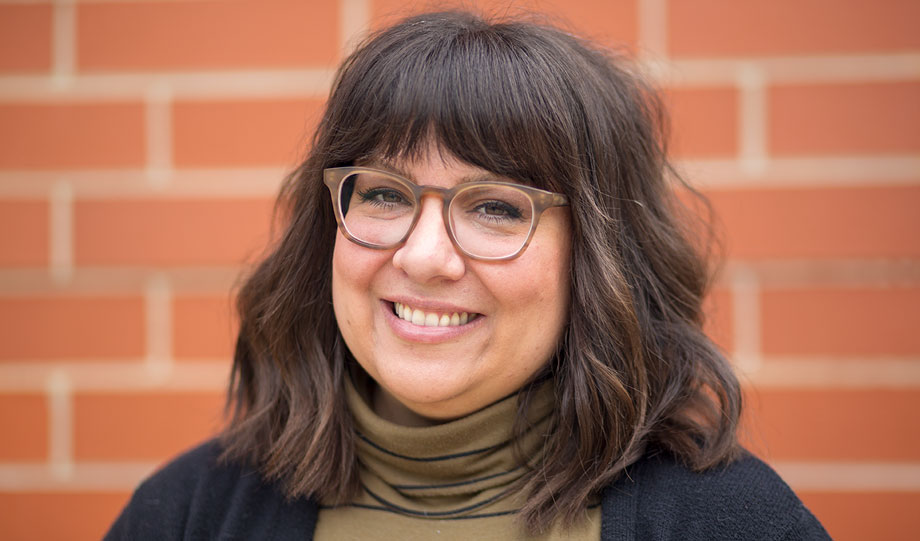
Program: English
Jill Salas majored in English by default.
“As a first-generation college student, I didn’t really have anyone to take the time to assist with my career exploration or talk about all the different college majors,” she said. “All I remember thinking was that I really wanted to go to college and be the first in my family to get a college degree.
“I picked English as a major because I enjoyed reading and writing, and I was told by my teachers that I wrote strong argument and persuasive essays. That said, I happily discovered that English was a rewarding and enriching major, and I believe it laid the groundwork for my success in graduate school.”
Teaching was not an early goal, but Salas began to realize that it was a good fit.
“I worked several jobs throughout college, and I learned on the job rather quickly, so each of my supervisors tasked me with training new employees,” she said. “I recall more than once that trainees thought I was patient, encouraging and easy to work with. When I realized I enjoyed helping my co-workers learn and achieve independence, I knew that some aspect of teaching or training was in my future.”
After earning bachelor’s and master’s degrees from Governors State University, Salas taught writing and literature courses as an adjunct at several Chicago area community colleges before working full-time at Oakton Community College and then Harper College, where she managed tutoring services. This experience helped strengthen her teaching skills.
“I was frequently privy to student conversations about their learning challenges. Students’ input and ideas about their needs made me committed to making sure my class was supportive and engaging.”
Now at College of DuPage, Salas teaches developmental writing courses and has specific goals to help her students succeed.
“In my introductory writing class, English 1101, I hope students develop confidence in their writing and as a result, take more risks as writers,” she said. “So many students begin the course believing they are poor writers simply because they struggle with writing, at which point I reply, ‘Writing is hard for everyone, even professional writers and authors!’ I tell them that a little discomfort is normal, and writer’s block is normal, but writing improves only through reflection and revision over long periods of time. In that sense, I want students to frame writing as an ongoing practice, not a one-and-done chore. On a philosophical level, I frame writing as power; writers have the ability to change the world with every word they choose. Who doesn’t think that is awesome?
“In my English 1102 course, I teach argumentative writing that requires research. I encourage students to explore issues relevant to their lives and communities in which research can inform a course of action or generate a solution. While students initially want to explore only one side of the issue, or only gather research that confirms their own opinions or biases, I push them to educate themselves on all sides of an argument. It’s beyond satisfying when students tell me one of their biggest takeaways from the research process is how much they’ve learned by being open to new or differing viewpoints.”
Salas enjoys the feedback she receives from students and finds inspiration in their pursuit of education.
“Our students are burdened with so many competing responsibilities. Each student I’ve known works one or more jobs, takes on significant household responsibilities, has children, cares for parents or siblings, lacks technology access, faces food or housing insecurities, and/or commutes long distances to work or campus. Their ability to juggle these priorities and attend college amazes me, and I do whatever I can to support them so they can reach their goals. At the end of each semester, I tell my students that my biggest reward is their success.”